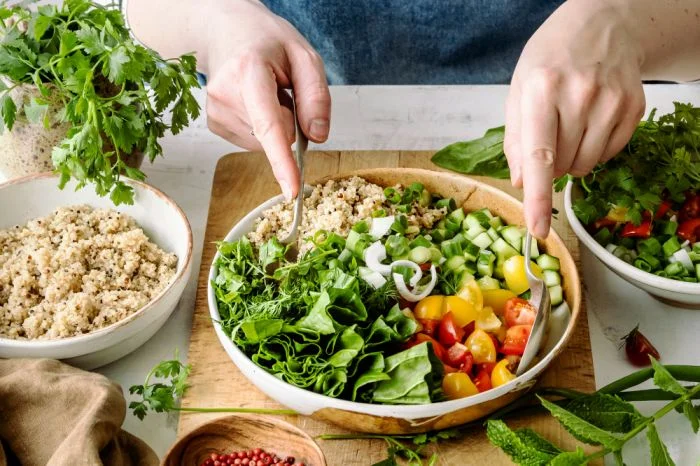Have you ever sat in your hostel room, stomach rumbling, wondering why even the simplest meal feels like a gamble with your gut? I’ve been there—more times than I care to admit. Back when I first moved into my university hostel, the canteen food and my digestive system were at war. One evening, after yet another greasy, late-night paratha left me feeling as though I’d swallowed a brick, I decided something had to change. That moment kicked off my long journey into discovering meals that were not only quick and cheap but also kind to the gut.
Over time, through trial, error, and a few conversations with dietitians and fellow students who’d cracked the code, I built a small collection of meals that made hostel life easier—not just for me, but for my stomach. This article brings together research-backed insights, personal experience, and expert advice to help you eat smarter, feel lighter, and have more energy for the long days ahead.
Why Gut-Friendly Meals Matter for Hostel Students
Living in a hostel often means dealing with unpredictable routines, inconsistent food quality, and limited kitchen access. Combine that with stress, late-night studying, and sleep deprivation—and your digestive system ends up doing more work than it should.
According to the British Nutrition Foundation, diets high in processed foods and low in fibre can directly affect digestion and even mental well-being. A study published in the Journal of Gastroenterology found that students who consumed more gut-supportive meals reported improved concentration, fewer energy crashes, and steadier moods.
When I asked Rachel Evans, a registered nutritionist from the UK specialising in gut health, why students struggle so much with digestion, she said:
“Students often underestimate how much stress and irregular meals affect the gut. Simple, fibre-rich foods and probiotic sources can make an enormous difference, even with limited cooking facilities.”
Her advice became the foundation of many meals I started making.
The Reality of Hostel Cooking: What You’re Actually Working With
Let’s be honest—hostel kitchens are rarely the gleaming, fully stocked haven that parents imagine. In most places, this is the reality:
- One or two working induction stoves
- A kettle that everyone fights over
- A microwave that makes a worrying buzzing sound
- Limited fridge space
- No fancy spices, no oven, no expensive equipment
So instead of sharing unrealistic recipes, I’ve focused on meals that I tested myself using exactly this sort of setup.
Key Gut-Friendly Ingredients You Should Always Keep on Hand
Over the years, I realised that having a few reliable, gut-supportive ingredients can make all the difference. These are all cheap, long-lasting, and easily available.
1. Oats
A great source of soluble fibre, which helps digestion and keeps you feeling full. The NHS also notes that oats help regulate cholesterol.
2. Yoghurt (Preferably Plain or Greek)
Rich in probiotics that balance gut bacteria. Opt for unsweetened versions to avoid extra sugar.
3. Bananas
Gentle on the stomach and packed with potassium. Ripen quickly but are great for quick breakfasts.
4. Eggs
One of the easiest, cheapest proteins. Naturally gentle for most people.
5. Brown Bread or Wholegrain Wraps
Higher fibre than white bread; better for digestion and energy.
6. Lentils (Especially Red Lentils)
Cook quickly, easy to digest, and ideal for students.
7. Rice
A naturally soothing, low-irritant meal base.
8. Ginger and Cumin
Both known for aiding digestion. Easy to store.
Quick and Gut-Friendly Meals You Can Make Even With Minimal Equipment
1. The Three-Ingredient Digestive Porridge
This was the first breakfast that stopped me from feeling bloated every morning.
You need: oats, banana, yoghurt.
How to make it:
- Heat oats with water in the microwave or kettle.
- Top with a sliced banana.
- Add 2–3 spoonfuls of yoghurt.
Why it works: The combination of soluble fibre + probiotics helps regulate digestion, and banana adds natural sweetness.
Expert Insight: Nutritionist Chloe Hall says, “Starting the day with soluble fibre helps stabilise glucose levels, preventing energy slumps that students struggle with.”
2. One-Pot Masala Khichdi (Pressure Cooker or Pot)
A comfort meal that kept me alive during exam season. It’s gentle yet nutritious.
Ingredients: rice, red lentils, turmeric, cumin, salt.
Method:
- Add a handful of rice and lentils to a pot.
- Sprinkle turmeric and cumin.
- Add water and cook until soft.
Why it works: Lentils provide plant protein, and rice makes it easy to digest.
Real-World Tip: If you want extra flavour without irritating your stomach, add a teaspoon of ghee at the end.
3. Protein-Rich Egg Wrap (Under 10 Minutes)
My go-to when the canteen food felt heavy or oily.
Ingredients: two eggs, a wholegrain wrap, spinach (optional).
Method:
- Scramble two eggs on a non-stick pan.
- Add them to a wrap.
- Throw in spinach if you have any.
Why it works: Balanced fibre, protein, and carbs that won’t cause stomach upset.
Expert Insight: According to the British Dietetic Association (BDA), eggs are gentle and nutrient-dense, ideal for students with irregular eating schedules.
4. Microwave Steamed Veg Bowl
Perfect for days when you want to feel clean and light.
Ingredients: carrots, peas, potatoes, salt.
Method:
- Add chopped veg to a microwave-safe bowl.
- Add a splash of water.
- Microwave for 4–5 minutes.
- Season lightly.
Why it works: High-fibre meals promote gut health and immunity.
5. Instant Rice Bowl with Yoghurt (Lazy Night Special)
This saved me after many late-night study sessions.
Ingredients: cooked rice, yoghurt, salt, cumin.
Method:
- Mix yoghurt with rice.
- Add a pinch of cumin.
Why it works: It’s a natural antidote for acidity and bloating.
Expert Insight: A 2021 study in the journal Nutrients showed that probiotics can reduce symptoms of indigestion and improve overall gut comfort.
How to Build a Gut-Friendly Meal Routine (That You’ll Actually Stick To)
Follow the “50:25:25” Rule
A dietitian once shared this ratio with me, and it changed everything:
- 50% fibre-rich foods (veg, oats, lentils)
- 25% protein (eggs, yoghurt, dals)
- 25% carbs (rice, wraps, brown bread)
This balance keeps digestion smooth and energy levels steady.
Eat at the Same Times Every Day (If You Can)
It sounds obvious, but your gut loves routine. Consistency promotes better digestion.
Prioritise Hydration
Most hostel students drink far less water than they think. The NHS recommends 6–8 glasses daily.
Go Easy on Spices and Oil
Canteen food is often heavy—your meals don’t have to be.
Add One Probiotic Source Daily
Yoghurt, fermented pickles, kefir (if available). Helps balance gut flora.
Common Gut Issues in Hostel Life—and How to Tackle Them
1. Bloating
Often caused by oily food or irregular meals. Combat with:
- Ginger tea
- Light, fibre-rich meals
- Avoiding carbonated drinks
2. Acidity
Triggered by late-night spicy food.
Try:
- Rice-yoghurt bowl
- Bananas
- Staying upright for at least 30 minutes after eating
3. Constipation
A real struggle for students.
Fix it with:
- Oats
- Steamed vegetables
- Adequate water
- Lentil soup
FAQs
What are the best gut-friendly foods for hostel students?
Oats, yoghurt, bananas, rice, lentils, eggs, and lightly cooked vegetables are ideal because they are easy to digest and inexpensive.
How can I avoid bloating in hostel meals?
Stick to meals low in oil and spices, add fibre-rich ingredients, and avoid carbonated drinks.
Can I maintain good digestion with only a kettle and microwave?
Yes. Oatmeal, steamed vegetables, yoghurt bowls, and lentil soups can all be made with minimal equipment.
Is yoghurt good for digestion?
Yes. Yoghurt contains probiotics that support healthy gut bacteria and improve digestion.
Final Thoughts
Cooking for yourself in a hostel isn’t just about saving money—it’s about taking control of your energy, mood, and health. You don’t need elaborate recipes or expensive ingredients; you simply need meals that support your gut and fit your lifestyle.
If you try any of these meals, or if you have your own gut-friendly hostel hacks, I’d genuinely love to hear them. What worked for you? What didn’t? Your ideas might help another student trying to survive hostel life with a healthier gut and a lighter mind.
Read Also: How Physiotherapy Helps Swimming Injuries




